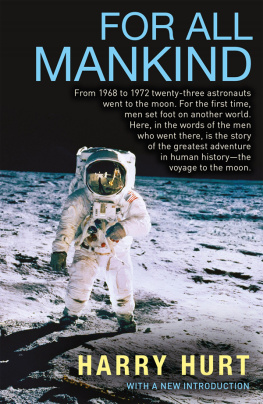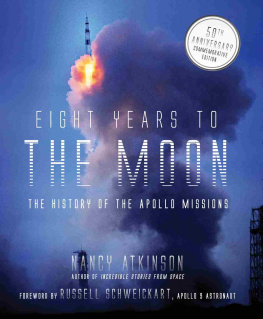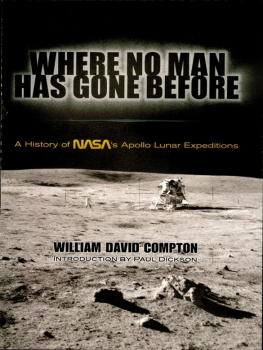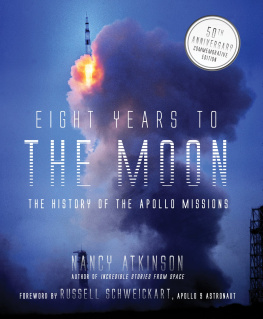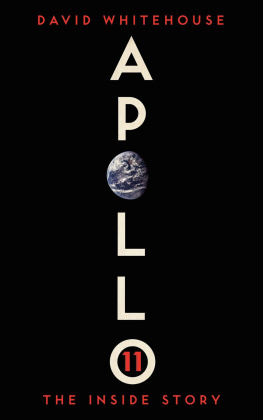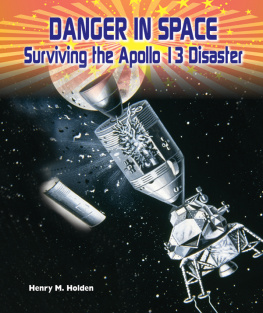Contents
Guide
For All Mankind
ALSO BY HARRY HURT
Texas Rich
Lost Tycoon
Chasing the Dream
Hurt Yourself
FOR ALL MANKIND
HARRY HURT
INTERVIEWS BY AL REINERT

First published in the United States of America and Canada in 1988 by Grove Atlantic
This paperback edition published in Great Britain in 2019 by Grove Press UK, an imprint of Grove Atlantic
Copyright 1988 by Harry Hurt
The moral right of Harry Hurt to be identified as the author of this work has been asserted by him in accordance with the Copyright, Designs and Patents Act of 1988.
All rights reserved. No part of this publication may be reproduced, stored in a retrieval system, or transmitted in any form or by any means, electronic, mechanical, photocopying, recording, or otherwise, without the prior permission of both the copyright owner and the above publisher of the book.
1 3 5 7 9 8 6 4 2
A CIP record for this book is available from the British Library.
Paperback ISBN 978 1 6118 547 94
E-book ISBN 978 1 61185 910 2
Printed in Great Britain
Grove Press, UK
Ormond House
2627 Boswell Street
London
WC1N 3JZ
www.groveatlantic.com
To the astronauts and cosmonauts who have given their lives in the human exploration of space...
Valentin Bondarenko | March 23, 1961 |
Virgil I. Grissom | Apollo 1 |
Edward H. White II | January 27, 1967 |
Roger B. Chaffee |
Vladimir Komarov | Soyuz 1 |
April 24, 1967 |
Georgy Dobrovolsky | Soyuz 11 |
Vladislav Volkov | June 30, 1971 |
Viktor Patsayev |
Francis Scobee | Challenger |
Michael Smith | January 28, 1986 |
Judith Resnik |
Ronald McNair |
Ellison Onizuka |
Gregory Jarvis |
Christa McAuliffe |
Rick D. Husband | Columbia |
William C. McCool | February 1, 2003 |
Michael P. Anderson |
Ilan Ramon |
Kalpana Chawla |
David M. Brown |
Laurel Blair Salton Clark |
CONTENTS
PROLOGUE: FOR ALL MANKIND
We choose to go to the moon in this decade and do the other things, not because they are easy, but because they are hard, because there is new knowledge to be gained and new rights to be won, and they must be won for the progress of all mankind...
We shall send to the moon, more than 240,000 miles from the control center in Houston, a giant rocket more than 300 feet tall, made of new metal alloys, some of which have not yet been invented, capable of standing heat and stresses several times more than have ever been experienced, fitted together with a precision better than the finest watch, carrying all the equipment needed for propulsion, guidance, control, communications, food, and survival, on an untried mission to an unknown celestial body...
And therefore, as we set sail, we ask Gods blessing on the most hazardous and dangerous and greatest adventure on which man has ever embarked...
PRESIDENT JOHN F. KENNEDY
September 12, 1962
B etween December of 1968 and December of 1972, twenty-four men left the earth and flew to the moon. Twelve of those men landed on the moon and walked on the lunar surface. Mans first lunar landing occurred at 3:18 p.m. Houston time on July 20, 1969, when Apollo 11 astronauts Neil A. Armstrong and Edwin E. Buzz Aldrin, Jr., touched down in the Sea of Tranquility. At 9:56 that night, Armstrong hopped off the ladder of the lunar module Eagle, steadied his feet in the surrounding moondust, and uttered the now famous sentence: Thats one small step for man, one giant leap for mankind.
Back on Earth, where an estimated six hundred million people (roughly one-fifth of the worlds total population at the time) watched Armstrongs giant leap on live TV, there was a strange mixture of joy and disappointment, elation and outright disapproval. President Richard M. Nixon later proclaimed this to be the greatest week in history since Creation. But in light of the ongoing war in Vietnam and erupting urban social problems, a highly vocal minority of poor, black, and disaffected young white middle-class Americans branded the expenditure of $40 billion to land two men on the moon a racist, sexist, and elitist waste of tax money.
After the Apollo 12 astronauts made mans second lunar landing four months later, even the most patriotic members of Americas silent majority began to question the necessity of more moon shots. The mass media created the mistaken impression that Project Apollo was merely a repetitious public relations exercise, a technological boondoggle demanding little or no human heroics. That misperception was only temporarily challenged by the catastrophic explosions on Apollo 13 that nearly claimed the lives of the three astronauts on board. Once the Apollo 14 landing got the program back on track, the prevailing popular attitude toward subsequent lunar missions became, in the words of a widely reprinted photo caption, So what?
After the Apollo 17 mission in December of 1972, the National Aeronautics and Space Administration (NASA) terminated Project Apollo before accomplishing all of the programs ambitious lunar exploration objectives. Space agency officials had originally planned eight to twelve moon landing missions. Instead, there were only six, not counting the ill-fated Apollo 13, which circled the moon but could not land on the lunar surface.
Under pressure to give the American public a tangible return on their tax dollars, NASA embarked on a controversial new program based on the reusable space shuttle. Henceforth, the space agency paid only lip service to the noble theme etched on the plaque the Apollo 11 astronauts left on the moon: We came in peace for all mankind. The first series of shuttle flights pioneered the commercialization and militarization of space, forsaking manned exploration of the solar system to concentrate on the pursuit of profits and the development of a Strategic Defense Initiative (SDI), also known as Star Wars.
The tragic explosion of the space shuttle Challenger on January 28, 1986, has since prompted a long-overdue reexamination of the goals and operations of the U.S. manned space program. The loss of the seven Challenger astronauts, who included a civilian grade school teacher, reminded all the world of the true dangers of what had come to be taken for granted as a routine exercise safer and more tedious than a cross-country automobile trip. Subsequent revelations of alleged malfeasance by NASA and the shuttles private contractors have led critics to demand that future space ventures be modeled after the visionaryand successfulapproach pioneered by Project Apollo.
Nevertheless, most of the world public still fails to recognize that Project Apollo was, just as President Kennedy had predicted it would be, the most hazardous and dangerous and greatest adventure on which man has ever embarked. Future historians will probably regard the first lunar landings as the most significant accomplishments of the twentieth century. Although there have been numerous revolutionary breakthroughs in medicine, agriculture, manufacturing, communications, and transportation in previous eras, this is the first century in which human beings have left the earth and traveled to another planet. Neil Armstrongs giant leap ended mans cosmic isolation from the rest of the universe and began a voyage into the unknown that will undoubtedly prove to be far more extraordinary than any science fiction fantasy.

